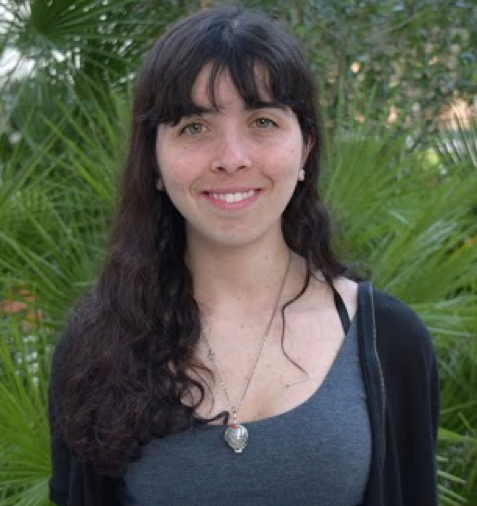Skylar Stolte, Ph.D. candidate in Dr. Fang’s SMILE Lab, received a National Institutes of Health (NIH) Ruth L. Kirschstein National Research Service Award (NRSA) Individual Predoctoral Fellowship (Parent F31) for her project “Mechanism, connectivity, and outcome prediction of anxiety intervention from MRI-derived models in tDCS augmented cognitive training”.
The prestigious fellowship covers full tuition, stipend, and educational expenses. Stolte’s mentor is Dr. Ruogu Fang, a tenured Associate Professor and Pruitt Family Endowed Faculty Fellow in the J. Crayton Pruitt Family Department of Biomedical Engineering. The overall impact of the work is to understand the mechanism, brain connectivity, and response heterogeneity that are involved in anxiety interventions. These findings will be pivotal in paving the way for individualized interventions for anxiety-paired mild cognitive impairment (MCI) or Alzheimer’s Disease (AD).
AD is the most common form of dementia. Dementia is detrimental to an individual’s standard of life, economic status, and psychological condition. Studies have shown that certain neuropsychiatric disorders can promote the progression of MCI to AD. These disorders include anxiety, depression, and apathy. Depression and apathy have been frequently studied; however, anxiety has largely been neglected. Transcranial direct current stimulation (tDCS) has shown some success as a safe and cheap intervention for anxiety and cognitive issues; however, results are varied due to inconsistencies across clinical trials. Stolte’s goal is to understand the mechanisms of anxiety response to tDCS in the aging brain. This work has the potential to improve the outcomes of tDCS interventions for anxiety-paired dementias. Broadly, her work will provide insight into the best intervention strategies to yield positive results to anxiety interventions. This will provide crucial insight into anxiety pathways and the ideal steps for targeted anxiety interventions to prevent AD and related dementia.

